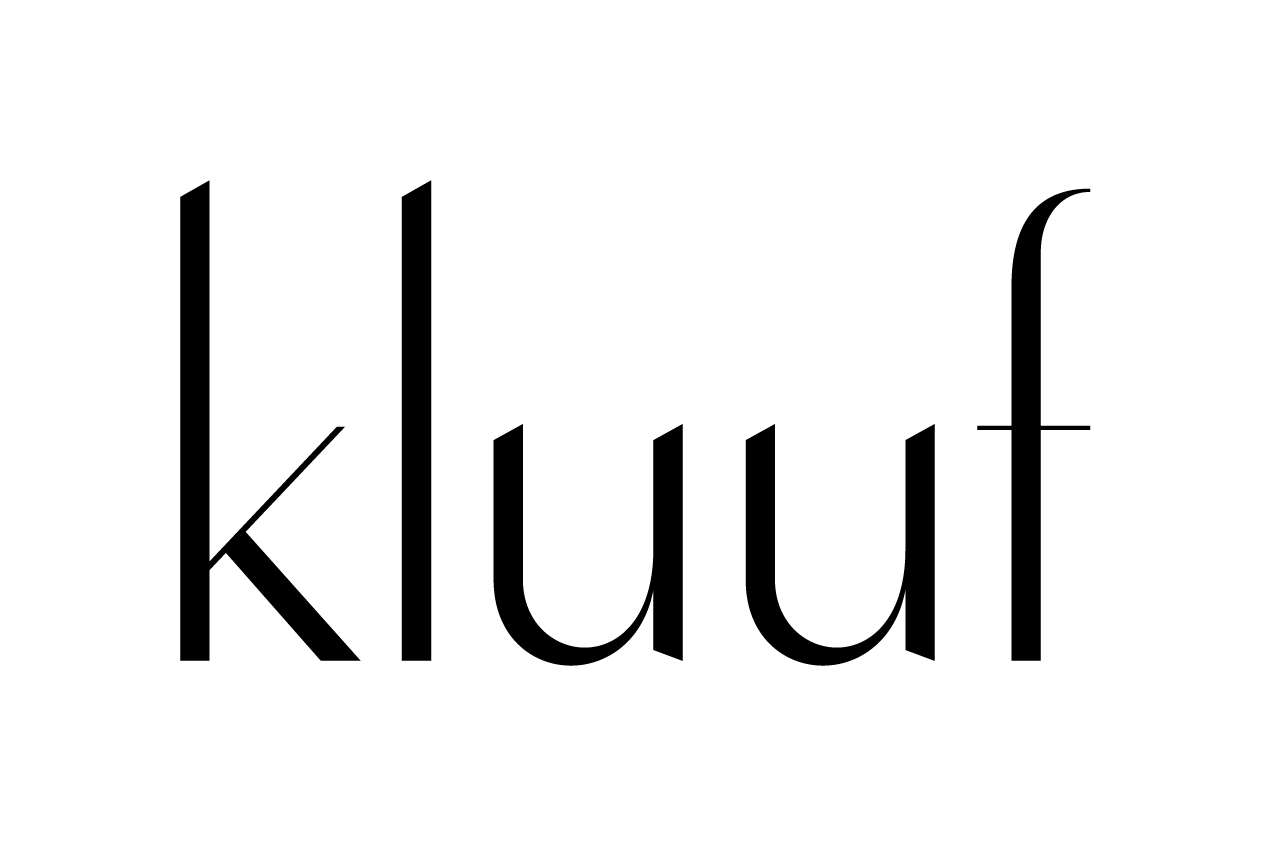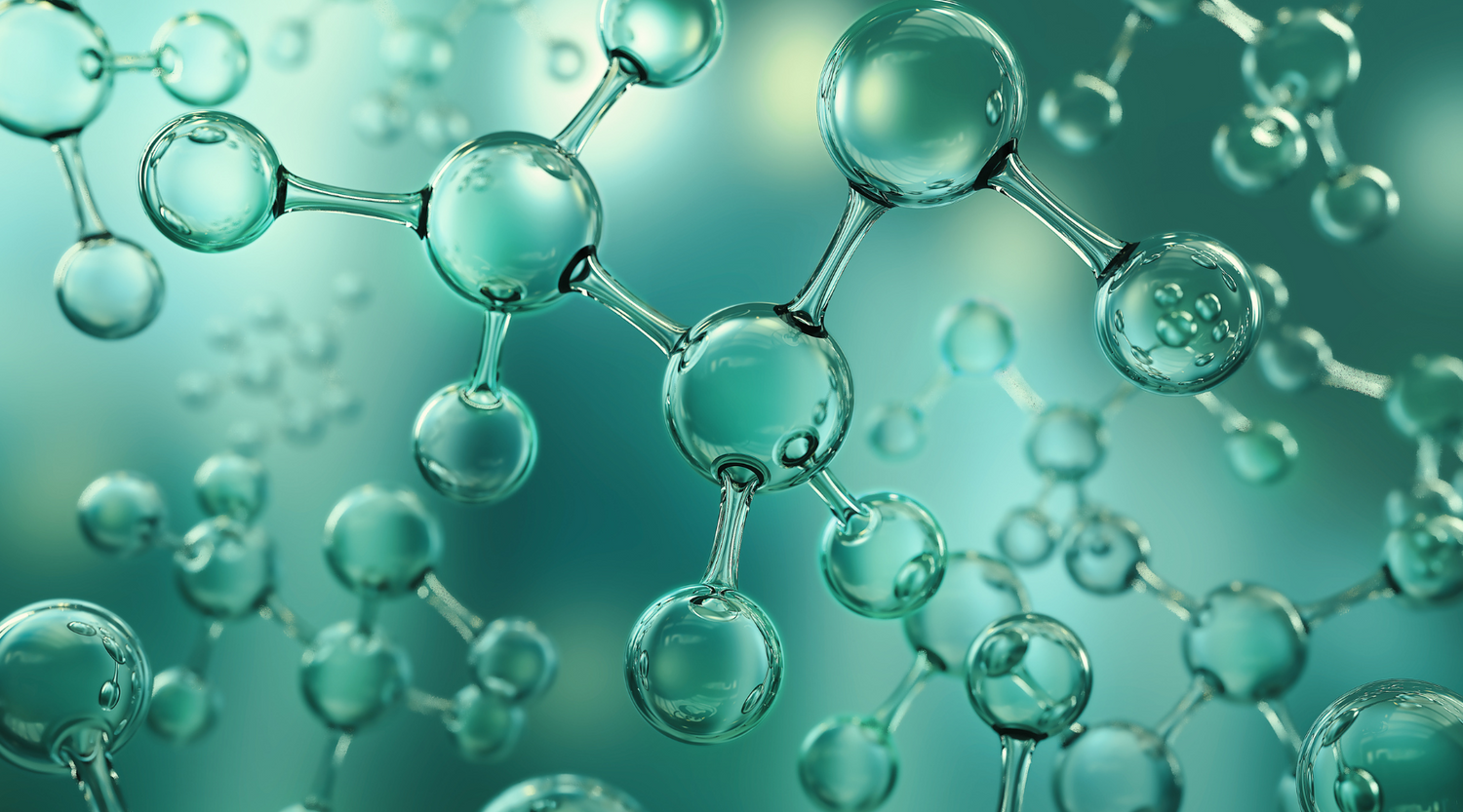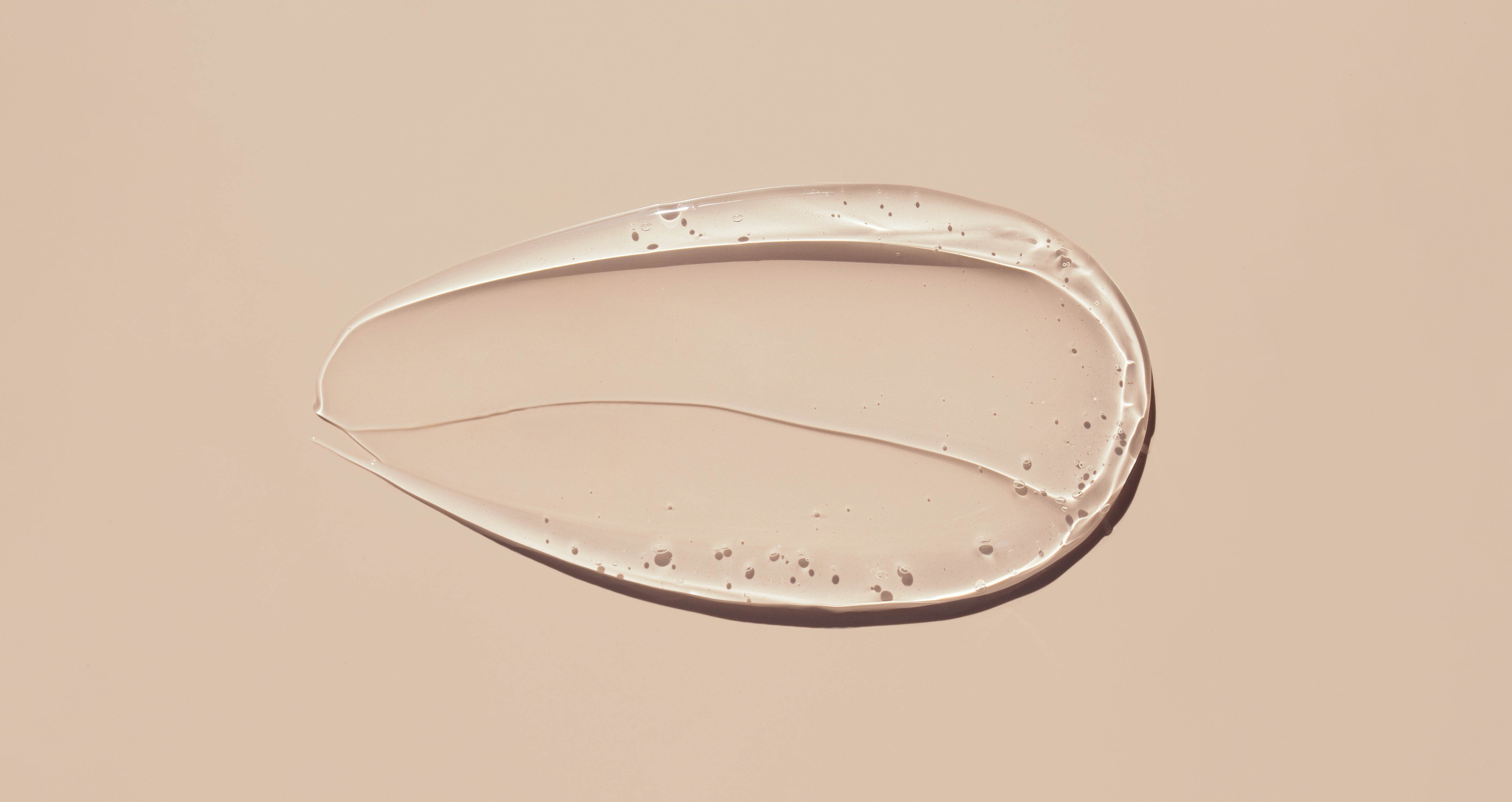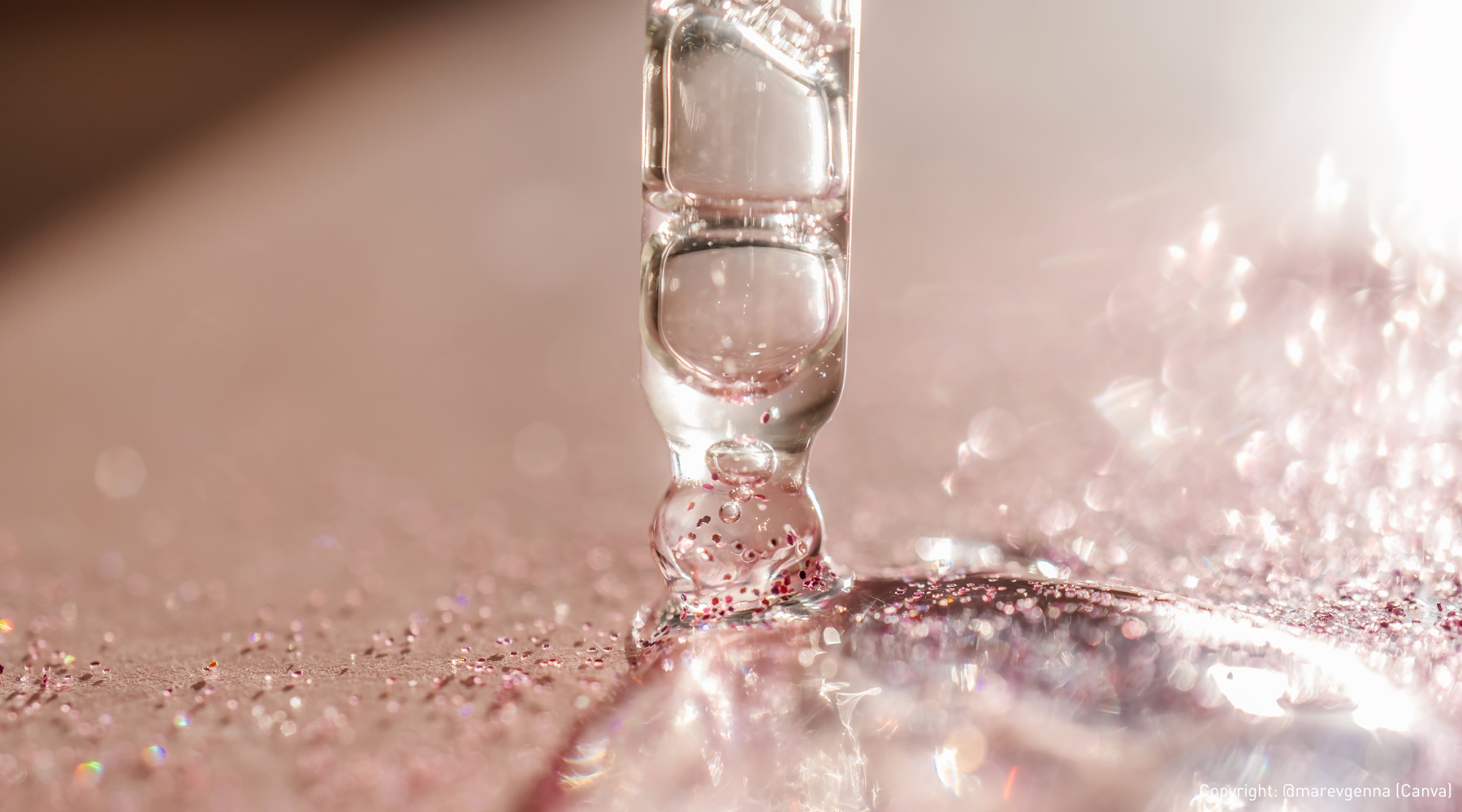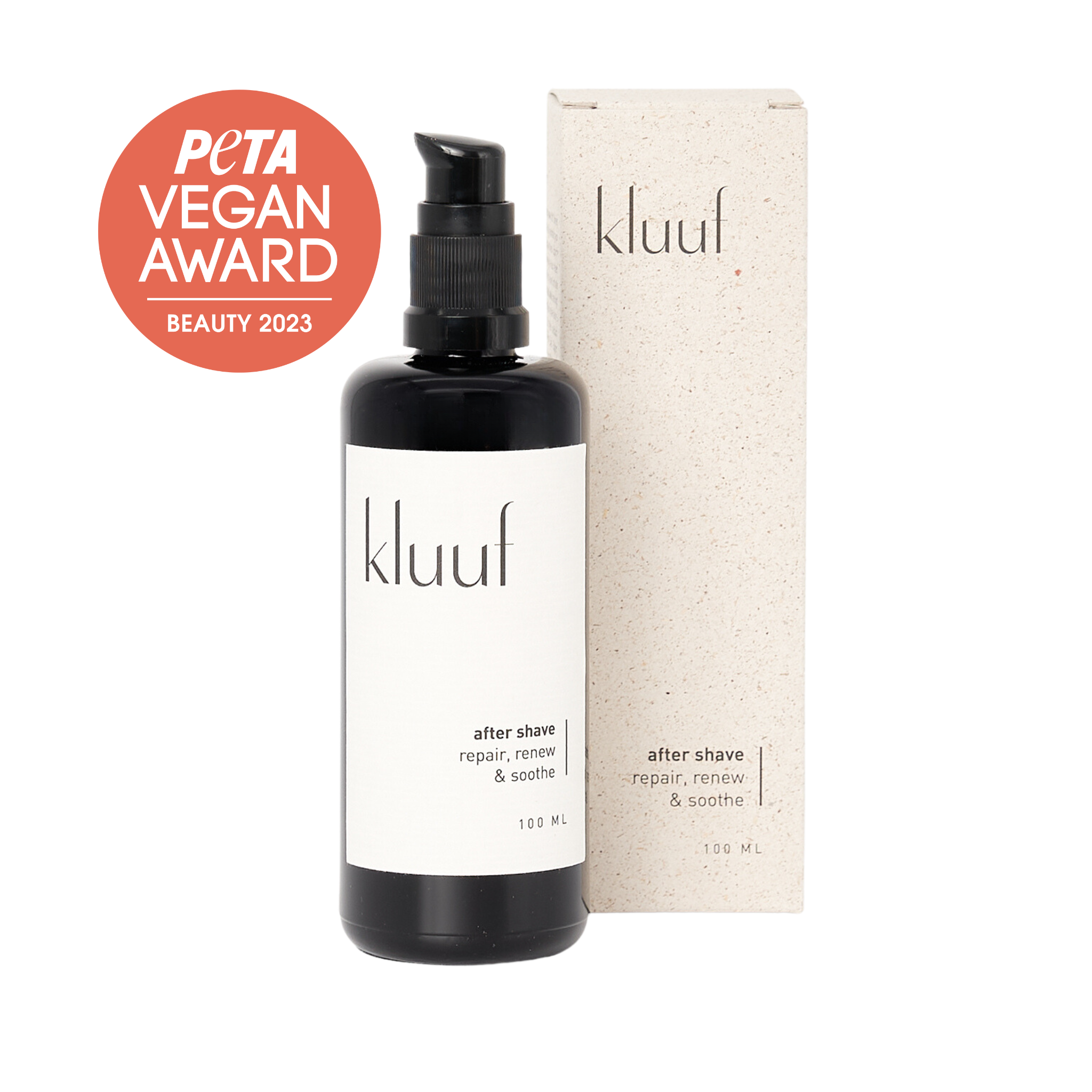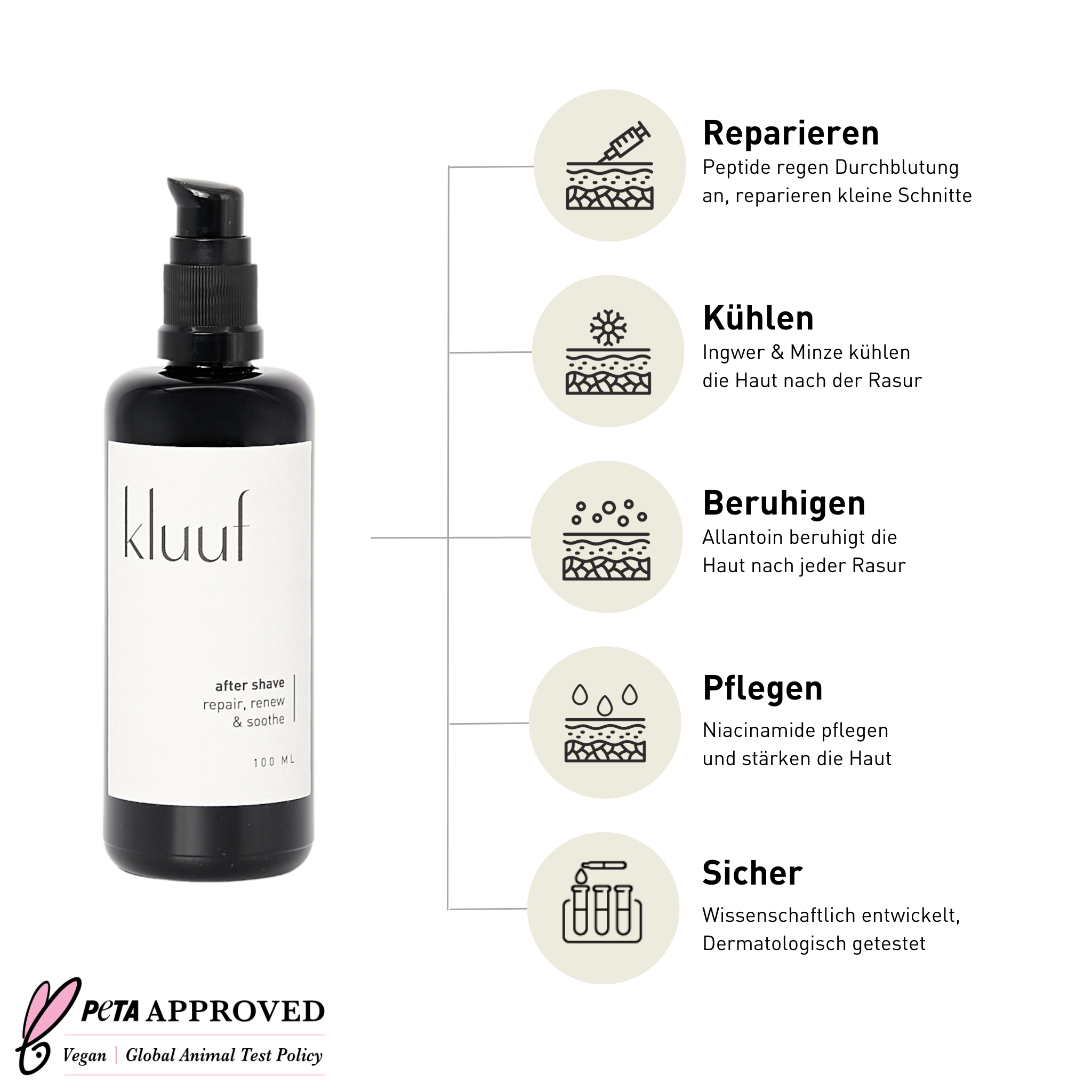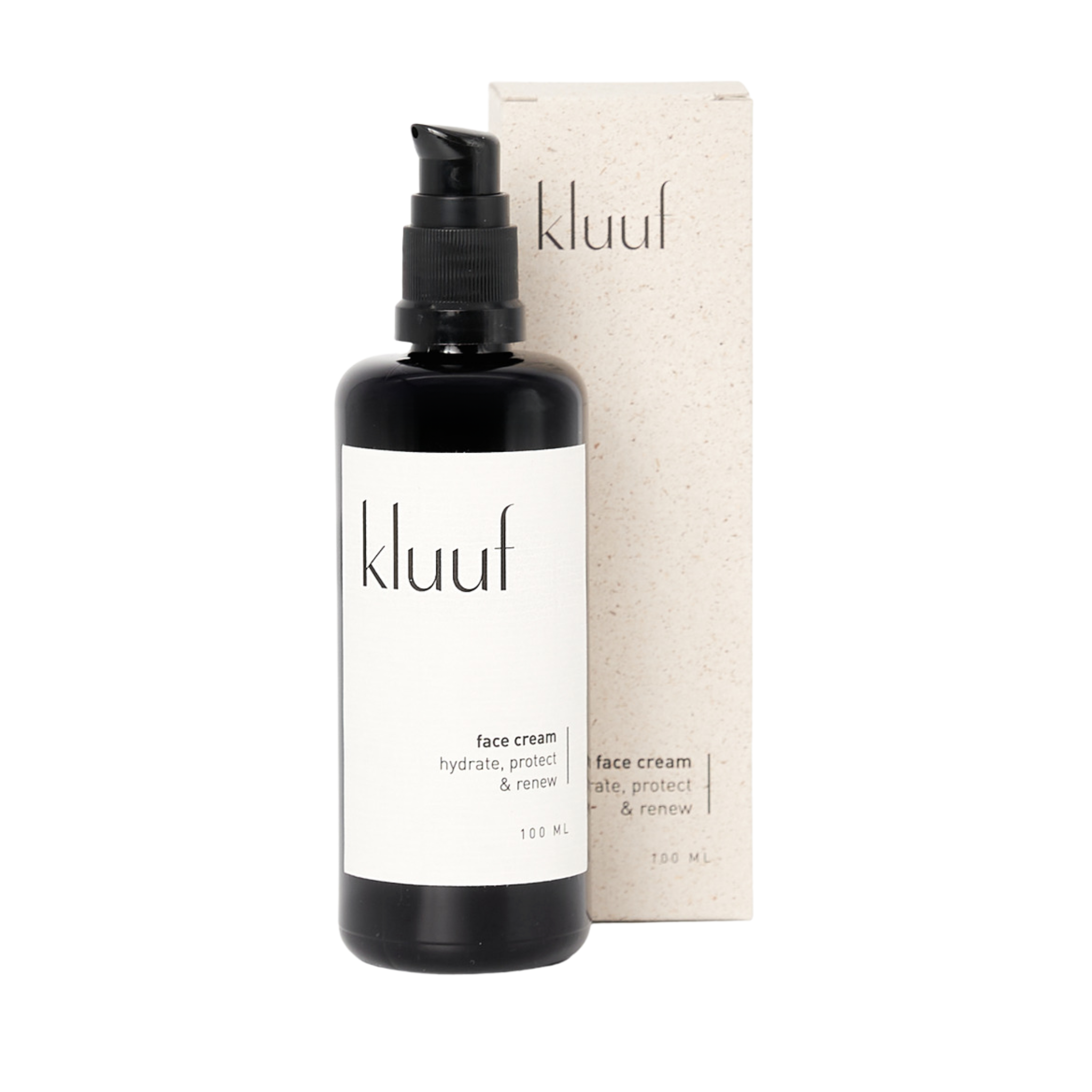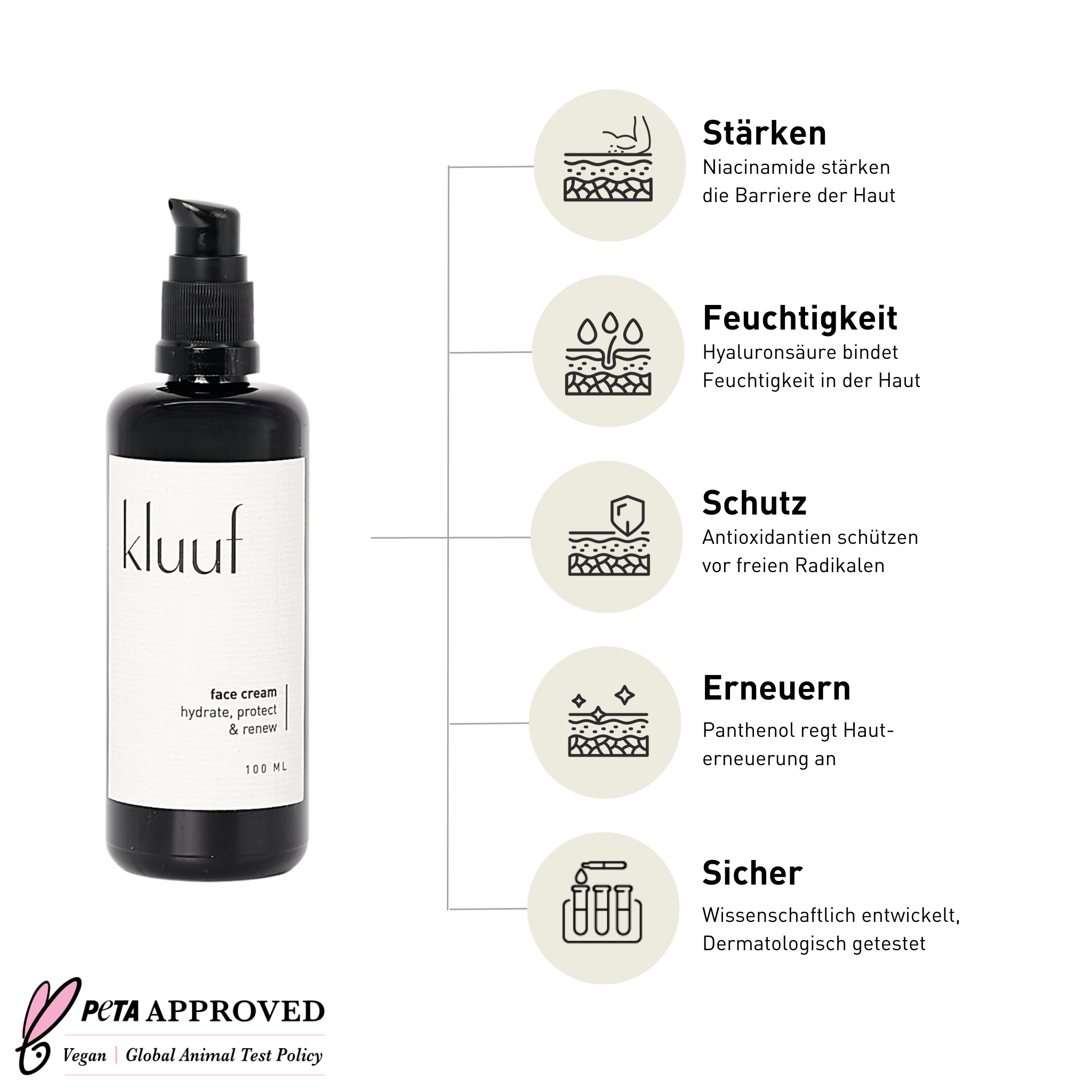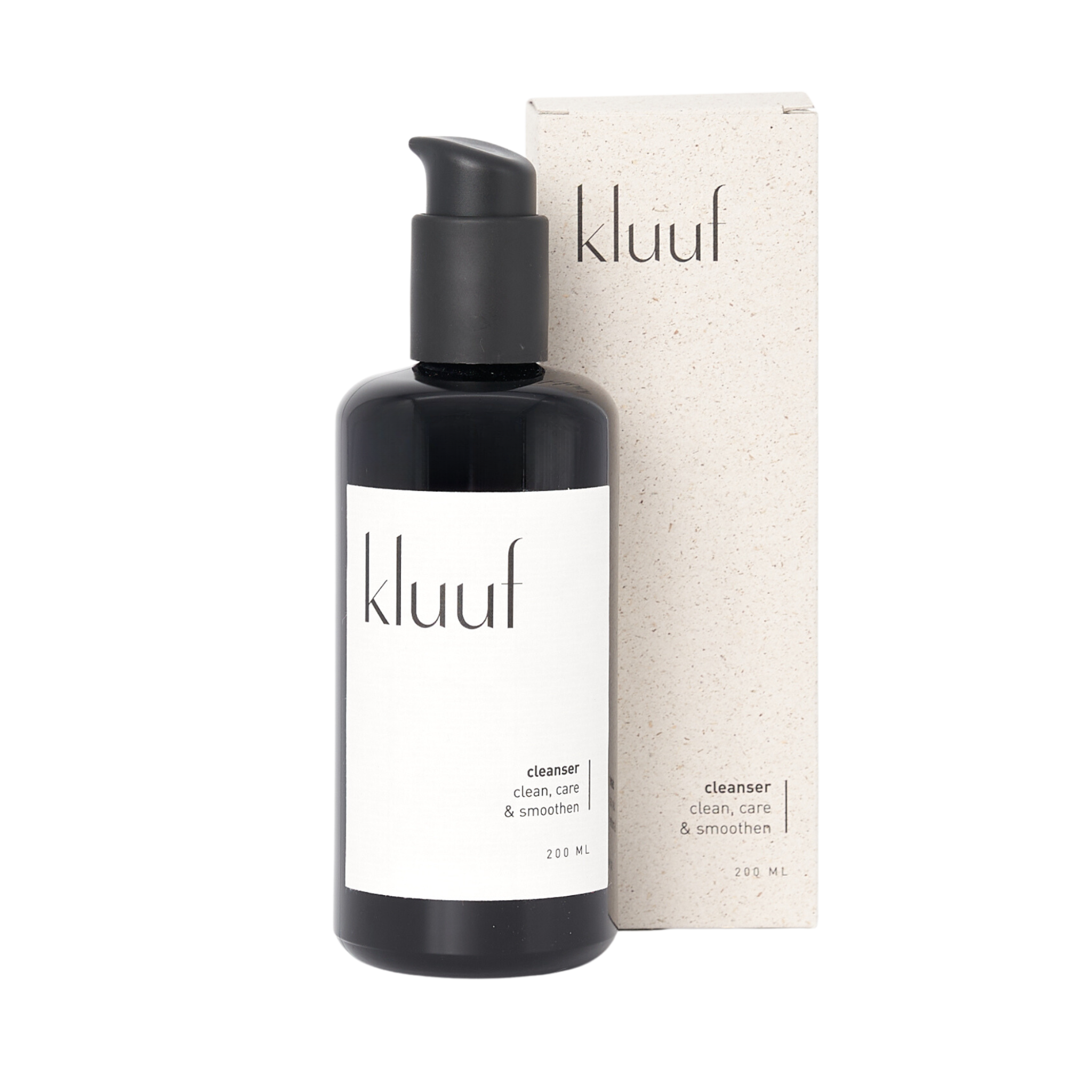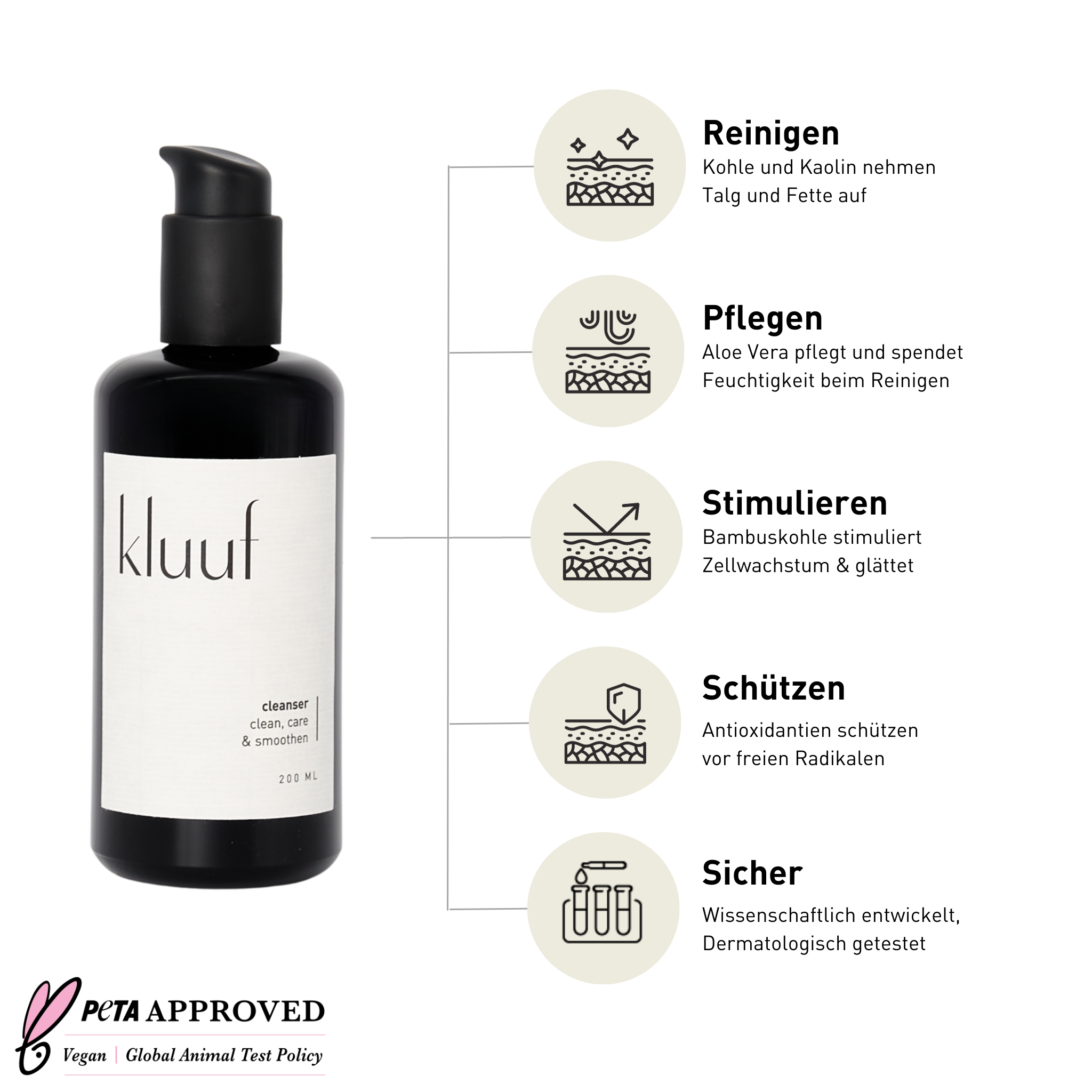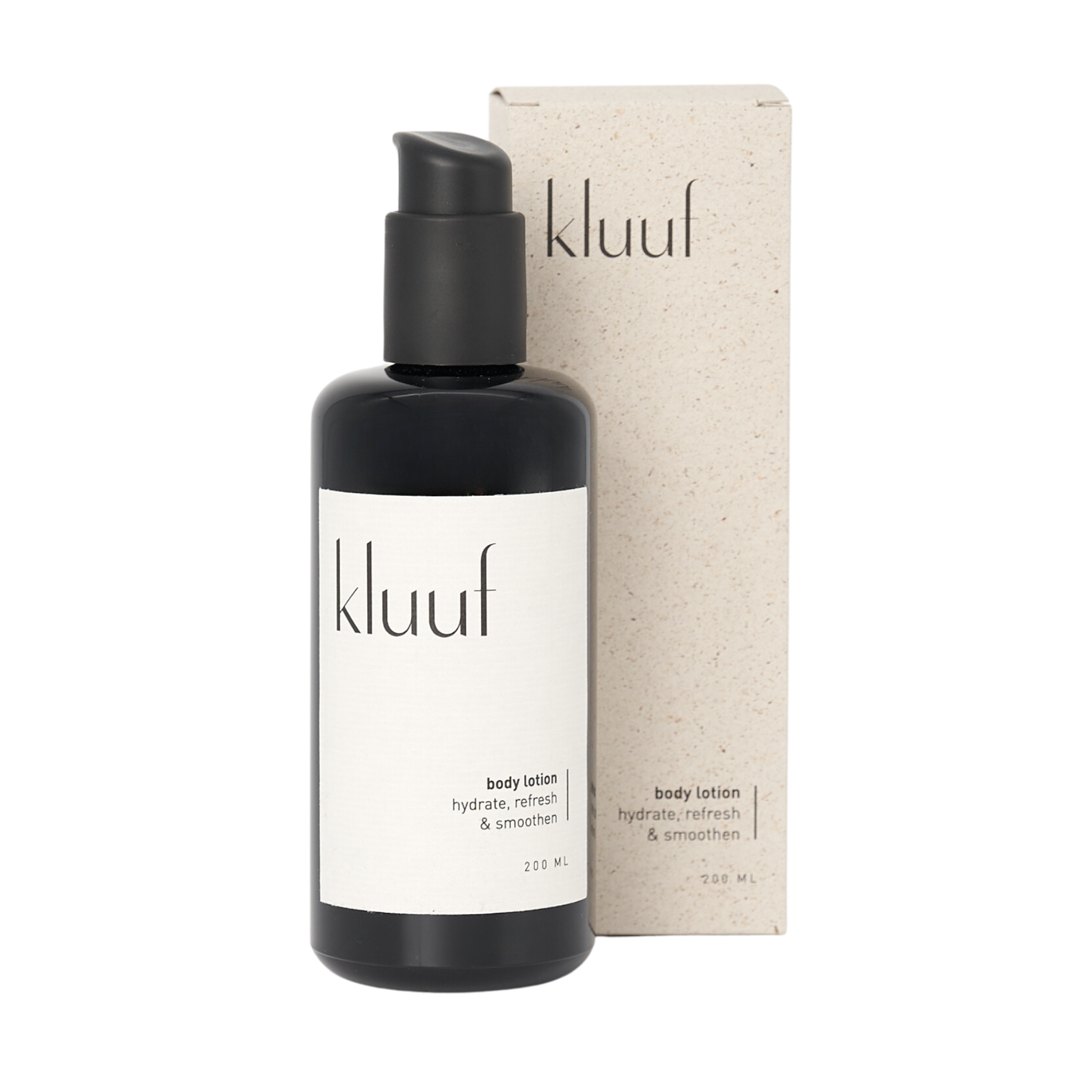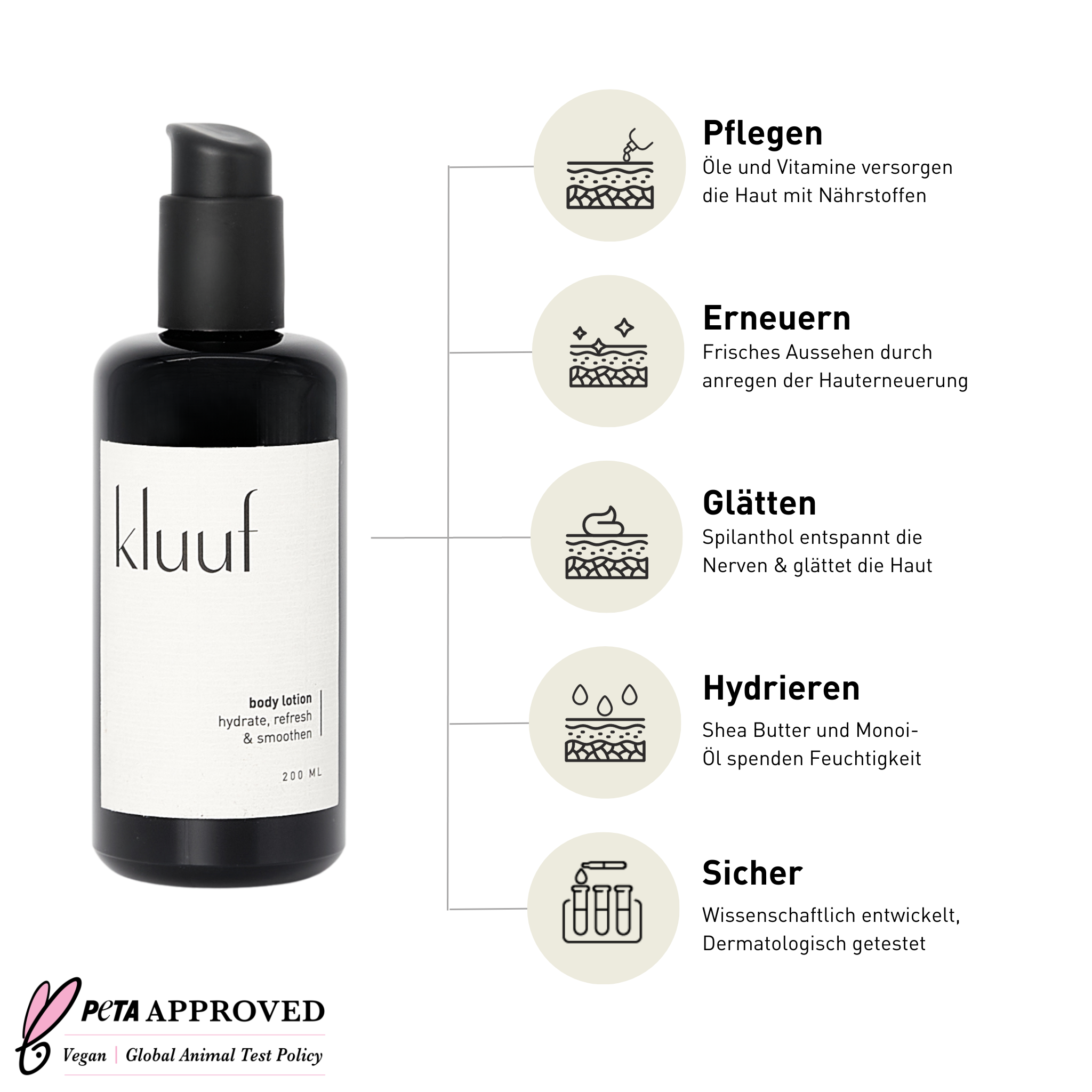So many different opinions about alcohol in skincare products are circulating around the internet that we at kluuf decided to write a scientific article to finally bring clarity to this topic.
First of all, it should be said that the effect of alcohol in skincare products cannot be generally assessed without taking a closer look, because alcohol can have both a positive and a negative effect on our skin.
It is important to understand that there are different alcohols and that the concentration of an ingredient also plays a significant role. You can consider a cocktail as an analogy here: If an low-grade alcohol is used, the drink may taste just as bad as if too much of a spirit is used. But back to academia and off to the classroom:
Monohydric and polyhydric alcohol
In chemistry class, we learn that a hydroxyl group consists of a hydrogen (H) atom and an oxygen atom. Together, the (-OH) groups form an integral part of an alcohol's structure, and this is where the difference comes in:
- Monohydric alcohols bind one hydroxy group. Example ethanol.
- Bivalent alcohols bind two hydroxy groups. Example pentylene glycol
- Polyhydric alcohols bind three hydroxy groups. Example Sorbitol
The -OH groups in bivalent and polyhydric alcohols form the basis for so-called fatty alcohols, which are obtained from coconut or palm oil, for example, and it is precisely these fatty alcohols that are good for the skin, while monohydric alcohols such as ethanol or methanol can harm the skin.
How can fatty alcohols benefit our skin?
Fatty alcohols can do good for our skin in a number of ways, and they also perform important functions behind the scenes, such as preserving sustainable skin care products.
Particularly noteworthy, however, is that alcohol can serve as a moisturizer (attracts and binds water) and at the same time works as a stabilizer and consistency provider in skin creams.
Examples of some fatty alcohols popularly used in vegan skin and facial care products include:
- Cetyl alcohol
- Pentylene Gylcol
- Butylene glycol
- Glycerin
Why monohydric alcohol can harm our skin
This leaves the question of where the opinion that alcohol can harm our skin comes from:
Fatty alcohol, as described above, has multiple benefits in skin care for men.
On the other hand, monohydric alcohols such as ethanol (INCI: Alcohol denat.) and propanol (INCI: Isopropyl alcohol) have been known to degrease and dry out the skin, especially when used in large concentrations. So these substances have the opposite effect. If care products with these ingredients are regularly applied, our skin barrier - which is our protective shield against the environment - is weakened. This can lead to blemishes, redness, dryness and irritation.
Historically, monohydric alcohol was used quite frequently and in large concentrations in skincare products, which probably also led to the bad reputation that still persists today. In the past, however, there were good reasons for this, because aftershaves, for example, made use of its disinfecting properties. Alcohol could also serve as a gateway for other ingredients into the layers of the skin (the weakened skin barrier makes it easier for other active ingredients to penetrate the epidermis).
Fortunately, there are more sustainable and gentle ingredients for both aspects now.
It depends
Whether alcohol is good or bad for our skin cannot be answered in a general way. If you discover alcohol on the INCI list, it's worth looking up the ingredient (e.g. on INCIdecoder) or using an app like Codecheck to understand how it affects the skin. These services are independent and analyze active ingredients based on scientific findings.
For that matter, at kluuf, we generally avoid monohydric alcohols and love to use pentylene glycol instead (the versatile benefits of this vegan miracle product are listed here). In small concentrations, we also use the unobjectionable Cetearyl Alcohol, Cetyl Alcohol, and Phenethyl Alcohol.
kluuf's products are therefore not alcohol-free, but we have learned that this does not detract from the quality and skin compatibility - on the contrary: we use these ingredients consciously. By the way, the skin compatibility of all our products has been confirmed as very good by an independent dermatological research institute.
Do you have any questions or suggestions? We are always happy to hear from you and hope to bring a little clarity to the sometimes complicated world of skin care.
